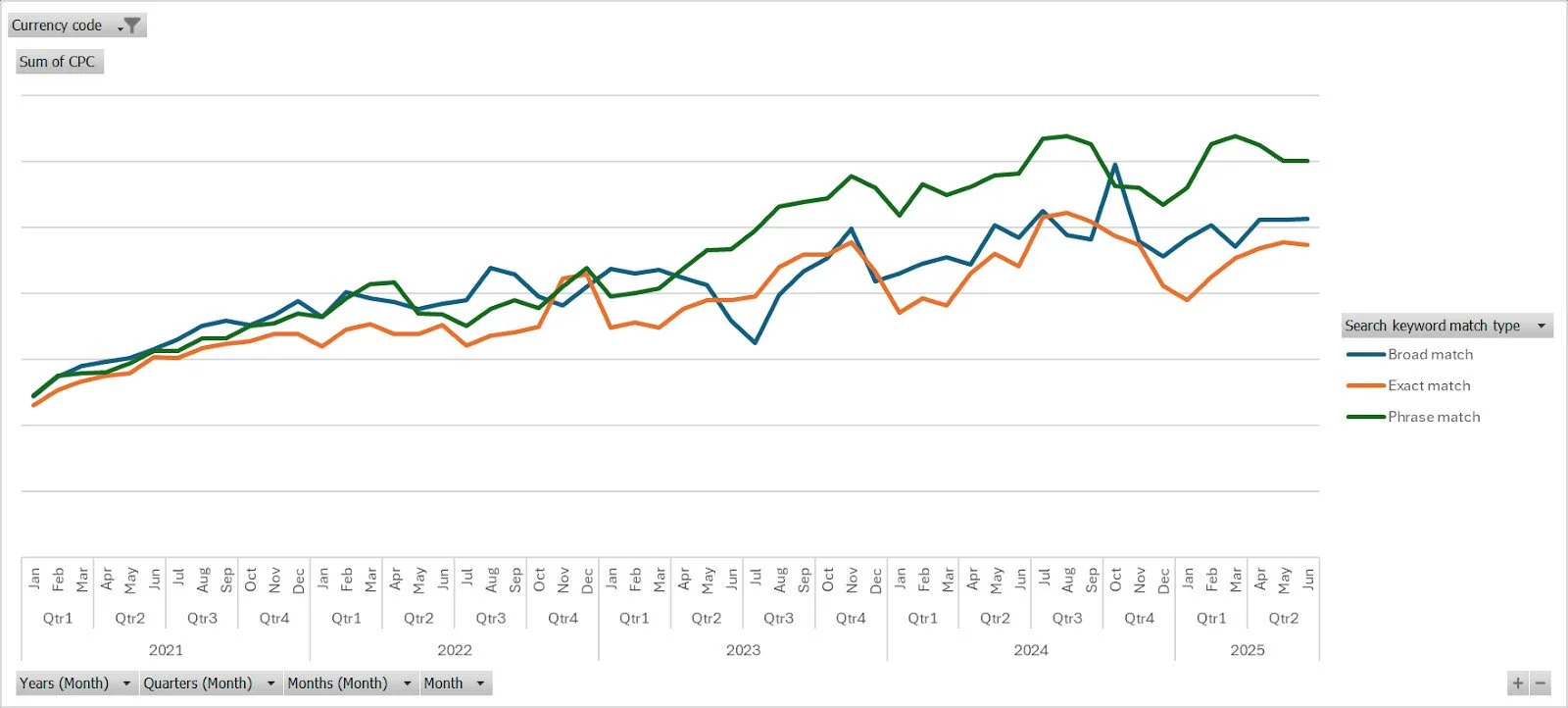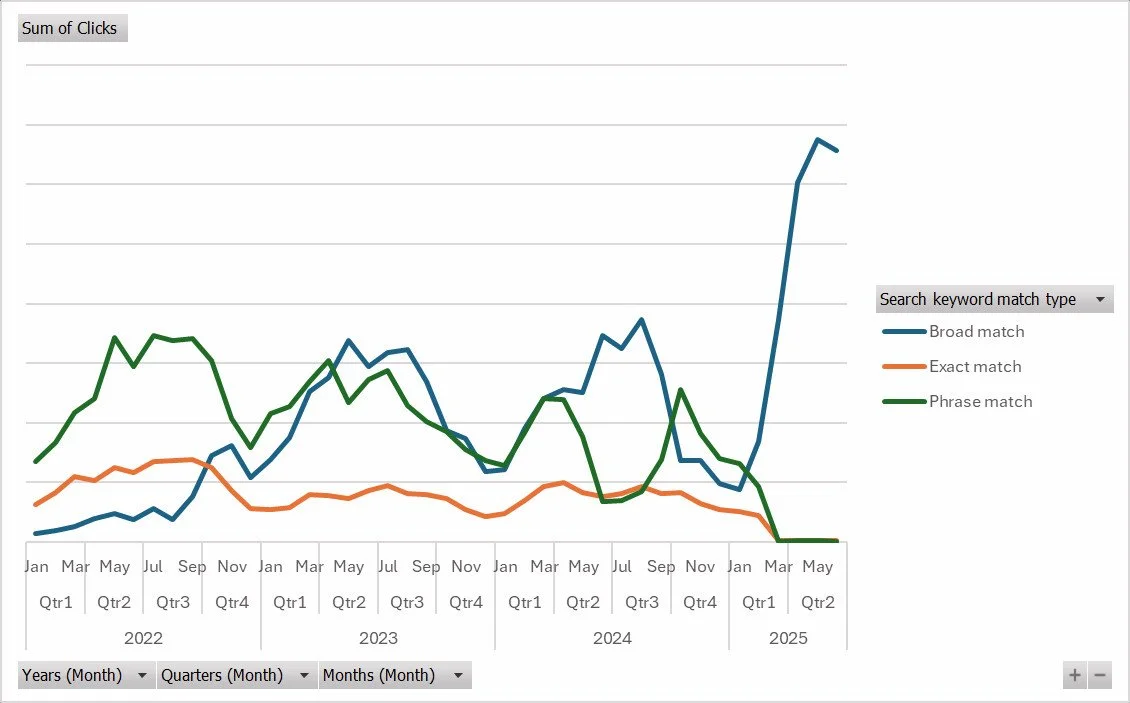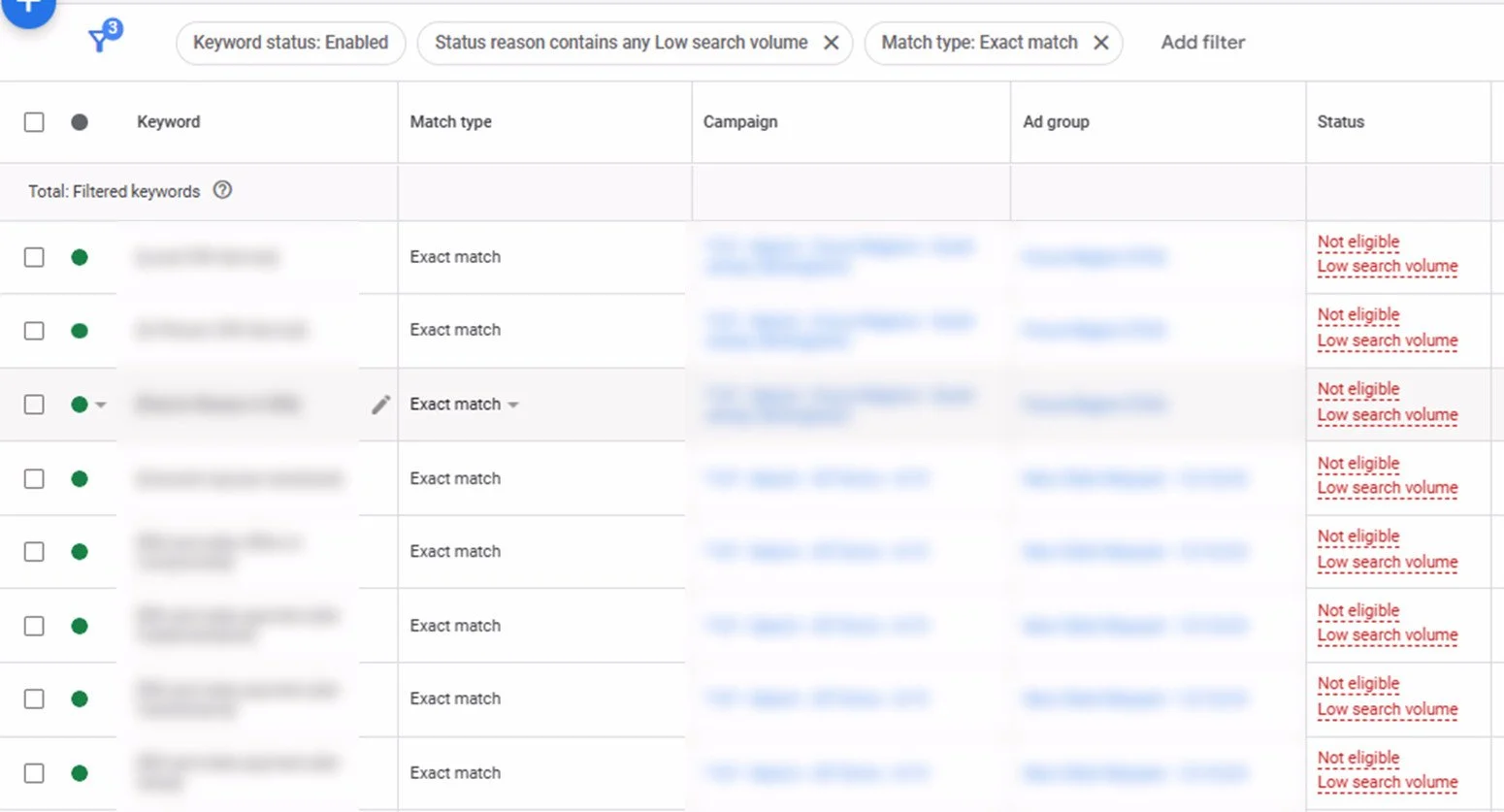Phrase Match Is Losing Ground to Broad Match in Google Ads
The big picture
Google Ads auction data indicates a clear tilt toward broad match. Phrase-match click costs have climbed more sharply, yet both match types now chase many of the same queries. The following trend chart visualises this shift.
By the numbers
Phrase-match CPC is up 43 percent since mid-2023.
Broad-match CPC is up 29 percent in the same period.
In one retail account, replacing phrase keywords with broad delivered a 13 percent ROAS lift after negative-keyword hygiene.
The table below highlights year-over-year deltas across several client segments.
Why we care
Paid-search budgets live or die on marginal efficiency. When phrase match costs significantly more to buy traffic that broad match can reach with stronger AI filtering, advertisers are effectively paying a control tax. Redirecting that spend to higher-yield programs protects overall return.
Between the lines
| Dimension | Phrase Match in 2025 | Broad Match in 2025 |
|---|---|---|
| Cost trend | +43 percent CPC | +29 percent CPC |
| Query coverage | Shrinking, limited by low-search-volume status | Expanding through semantic intent |
| Relevance safeguards | Manual negatives only | Machine-learning signals plus negatives |
| Google product support | Neutral stance | Preferred in recommendations and auto-apply rules |
Evidence from live accounts
Costs are diverging rapidly
Click share is consolidating under broad match
Exact and phrase keywords face low-volume suppression
How to respond
Validate conversion signals
Lead-gen advertisers should enable Enhanced Conversions for Leads so Smart Bidding optimises toward qualified outcomes instead of raw form fills.
Run a broad-match experiment
Use Google’s built-in 50-50 traffic split to compare current phrase keywords with broad twins inside the same campaign. Review search-term quality twice weekly, adding negatives as needed.
Prioritise revenue-based optimisation
Assign primary status to conversion actions that reflect revenue or qualified leads.
Track results against a clear scorecard
After onboarding a new lead generation client, we activated Enhanced Conversions for Leads, shifted keywords from phrase to broad match, and moved to value based bidding. The changes produced strong results. Cost per conversion went up, yet every conversion tied directly to a completed purchase rather than an early stage inquiry, which raised revenue and delivered a healthier ROAS for our generic campaigns.
Bottom line
Phrase match still has a role for precise control, but its economic advantage is fading. Rising costs, overlapping query coverage and Google’s automation agenda all favour a broad-first strategy supported by robust negative-keyword management and high-quality first-party signals. Test methodically, monitor the charts above and be prepared to let phrase play a supporting role, if any, through 2025 and beyond.










